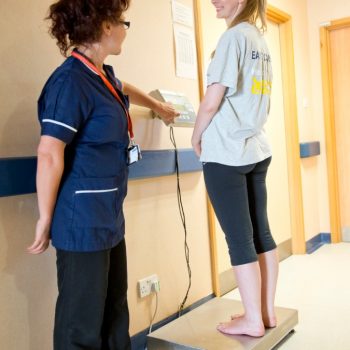Using nutritional biomarkers to show that not all fats are the same
One way of adding objective information to this picture is to use ‘nutritional biomarkers’ – molecules found in the body that reflect the foods we eat. These can be measured in body tissues such as blood or urine, and can provide helpful additional information.
To improve their understanding of the link between dietary saturated fat consumption and the risk of developing type 2 diabetes, researchers in Cambridge studied saturated fatty acid blood biomarkers as a way to help distinguish between different types of saturated fat.
They developed a sophisticated method of high-speed blood analysis to study biomarkers from thousands of people across eight European countries. They found that saturated fatty acids can be associated with both an increased and decreased risk of developing type 2 diabetes, depending on the type of fatty acids present in the blood.
These findings provide evidence that individual saturated fatty acids are not all the same. And they could partially explain recent other evidence that suggests some foods high in saturated fats, such as dairy products, could actually lower the risk of type 2 diabetes, while other high fat foods, such as red and processed meat, raise its risk.
Work remains to understand more about the precise relationship between what people eat and the chemicals found in their blood. However, in time, these types of findings could be used to help refine dietary guidance for everyone, and even as part of identifying groups of patients who could benefit from personalised lifestyle recommendations.



